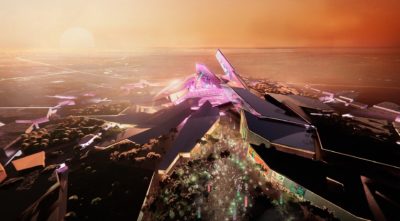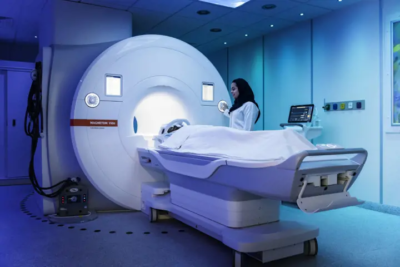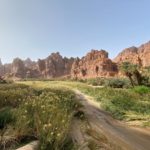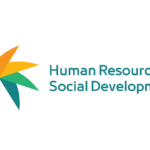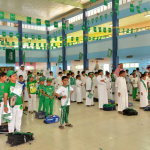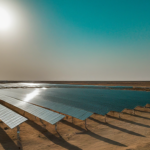
“Saudi Arabia’s recognition as the ‘Coffee Capital of the Middle East’ is a testament to our passion for coffee and our commitment to fostering a vibrant coffee culture. We believe that this is just the beginning of our journey, and we look forward to further elevating Saudi Arabia’s standing in the international coffee community.”
-Mohamed Al Zain, Al Amjaad Group CEO, which owns the Barn coffee franchise in Saudi Arabia which currently operates more than 550 stores across Saudi Arabia – the Middle East’s largest market. Barn plans to IPO within 12 months. [worldcoffeeportal.com]

“Absolutely not.”
-Saudi Arabian Energy Minister Prince Abdulaziz bin Salman, in response when asked in a TV interview in Riyadh whether Saudi Arabia would be happy to see language added to a statement at COP28 calling for the phase down of fossil fuels. [Bloomberg]

“SEVEN is investing more than SAR 50 billion to build 21 entertainment destinations which will provide unique and innovative world-class entertainment experiences and global partnerships from within the sector. The upcoming projects are located in 14 cities across the Kingdom: Riyadh, Kharj, Makkah, Jeddah, Taif, Dammam, Khobar, Al Ahsa, Madinah, Yanbu, Abha, Jizan, Buraidah, and Tabuk.”
Saudi’s “Seven” Announces SAR 1.3 Billion Entertainment Destination in Aseer [Saudi Gulf Projects]

“The Draft Income Tax Law (DITL) is not a new law and does not aim to tax persons or income not already taxable. The purpose of the new ITL is to enhance the current income tax regime in Saudi Arabia and to provide a more detailed and comprehensive income tax legislation. Under the draft law, specific provisions are introduced to determine tax residency and filing requirements.”
Saudi Arabia’s Upcoming 2024 Tax Reforms: The Proposals [Middle East Briefing]

“The India-Middle East-Europe Economic Corridor is still very much on paper and, like the BRI, might look different altogether when it materializes. Nevertheless, the geopolitical currents the project is propelling are consequential for regional security and connectivity across Southwest Asia and beyond.” Umer Karim and Saloni Kapur, Great Expectations: The India-Middle East-Europe Economic Corridor [Arab Gulf States in Washington]

“Israelis now face the stark reality that, despite 75 years of military prowess, nuclear capability and significant influence in the West, their state could not protect citizens in their homes — a fundamental function of the state and the essence of Israel’s existence. Despite Israel’s numerous achievements, including advanced military technology, the recent tragedy demonstrated the inadequacy of these measures to protect the families who were affected.”
Ali Shihabi, Israel must embrace reality, not ignore it [Arab News]

“The aim of these tests is to achieve objectives of the Saudi Vision 2030 to find clean fuel alternatives especially in the transport sector.” Also, “The environment in the kingdom differs from the European countries where the weather is cold. We are seeking to make the experience suitable to the atmosphere of the desert environment.” Saudi Arabia Railways planning director Ashraf Al Jabri. Saudi Arabia test runs hydrogen-powered trains in capital Riyadh [Gulf News]

“Opening the festival with a highly anticipated film like HWJN is a momentous event. With HWJN, Saudi cinema proves its capacity to bring together talents from across the Arab world at both the production and artistic levels. Through this choice, the Red Sea not only honors Saudi cinema but also all Arab talents, highlighting the remarkable progress that the Kingdom has witnessed in recent times.” RSIFF Arab Programs & Film Classics Director Antoine Khalife said of the opening night honor, which comes just six years after Saudi Arabia announced the lifting it 35-year cinema ban. Jeddah-Set Saudi Fantasy Romance ‘HWJN’ To Open Saudi Arabia’s Red Sea Film Festival [Deadline]

“This first production of unconventional tight gas from South Ghawar is a milestone that demonstrates real progress on our gas expansion strategy, which we believe has a role to play in meeting the Kingdom’s needs for lower-emission energy and supporting growth in the chemicals sector.” Nasir Al-Naimi, Aramco Upstream President, Saudi Aramco Starts Tight Gas Production At South Ghawar Field [Oilprice.com]

“Cirium fleets data shows that the six GCC nations now have a total of 2,072 active military aircraft between them: an increase of 121 since our last review prior to the 2021 Dubai show. Saudi Arabia’s 916-strong inventory accounts for a 44% share of the total, followed by the UAE (557/27%) and Qatar (226/11%). The other three nations each account for 6% of the overall figure, with their individual fleets being: Bahrain (122); Kuwait (122); and Oman (129). The largest fleet increase has been in Qatar, which boosted its inventory by 65 aircraft over the two-year period, followed by net increases in Kuwait (20), Saudi Arabia (19), Bahrain (12), the UAE (4), and Oman (1). Cirium indicates that five of the nations have a combined 374 military aircraft on order currently, while Oman has none.” Power shift: how GCC-member air forces are getting stronger [Flight Global]
